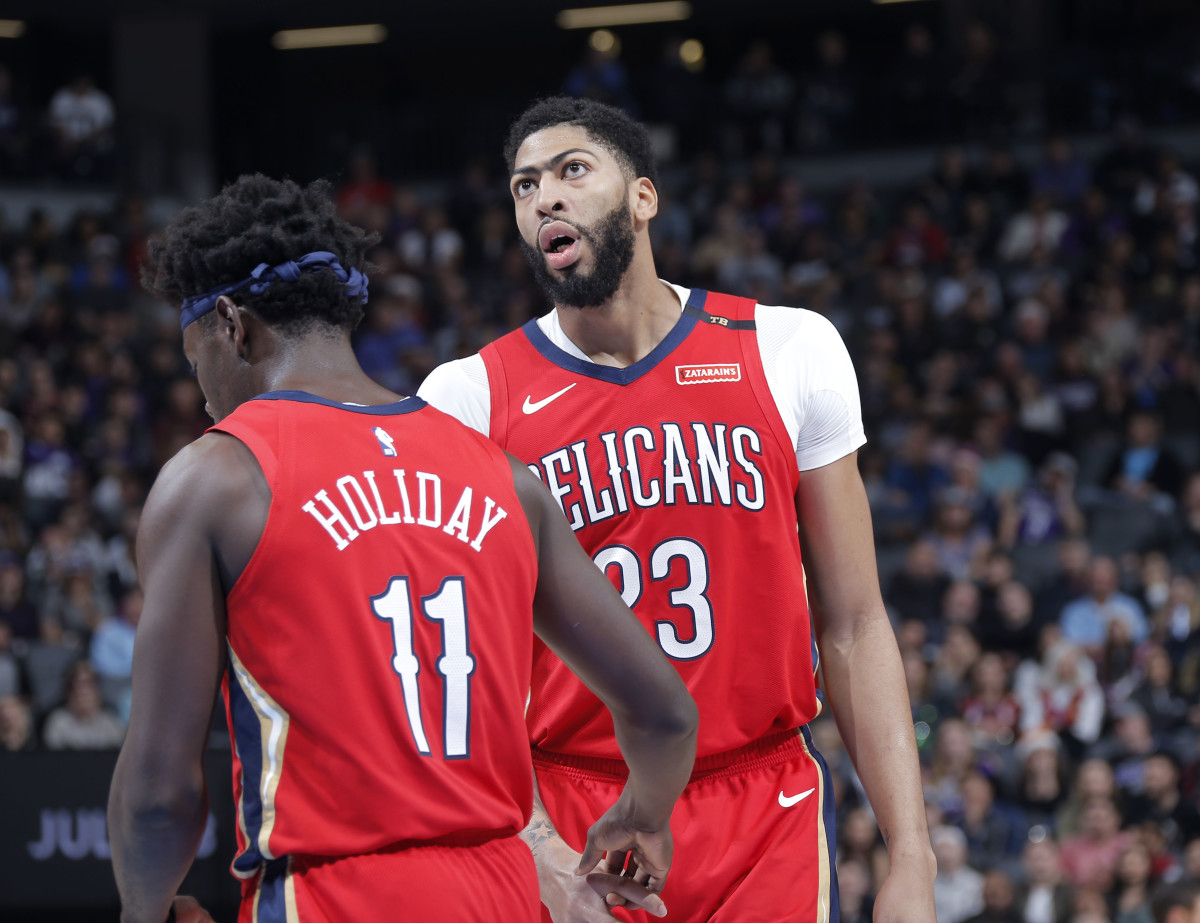Anthony Davis's Trade Demand and the Plight of Small-Market Teams

This story appears in the Feb. 11, 2019, issue of Sports Illustrated. For more great storytelling and in-depth analysis, subscribe to the magazine—and get up to 94% off the cover price. Click here for more.
Before you criticize Anthony Davis for his strategically timed trade demand, before you bemoan the eventual defection of another All-NBA player from a small-market team, understand: New Orleans brought a lot of this on itself. Years of doling out cap-crippling contracts (Ryan Anderson, Omer Asik, Solomon Hill) and dealing away draft picks put the Pelicans in the position they are in today—well under .500 with little reason to be optimistic about the future. Yes, Davis asked out of New Orleans last week, but given the state of the franchise, market size wasn't among the top reasons why.
Still New Orleans is a small market, and Davis will eventually become another name on a growing list of NBA stars who have left them. Kevin Durant bailed on Oklahoma City for Golden State, Kawhi Leonard wasn't interested in playing for San Antonio, Paul George muscled his way out of Indiana (though, his decision to re-sign with the Thunder shows that all hope is not lost). And now Davis, 25, finds himself coveted by two flagship franchises: the Celtics and the Lakers. Meanwhile Milwaukee is keenly aware that the clock is ticking until Giannis Antetokounmpo's free agency, in 2021.
SHARP: The LeBron Bargain Has Never Been Clearer
The NBA thought it curbed the superstar movement in 2016, when the designated player exception—a rule that allows homegrown talent to be eligible for supermax contract extensions, with annual salaries that can equal 35% of a team's cap—was written into the league's collective bargaining agreement (page 78). But something happened: Players the rule was aimed at stopped caring about guaranteed money. LeBron James led the charge with a string of short-term deals in Cleveland, and Durant followed suit. Davis has hinted he may do the same; in asking for a trade, he is declining a five-year extension that would guarantee him close to a quarter-billion dollars.
Is there a solution? Heat president Pat Riley has floated the idea of an NFL-style franchise tag, with an MLS twist. The broad strokes are that each team can tag one player and offer him an unlimited yearly salary. And, like the designated player rule in Major League Soccer, that salary would not count against the cap. The players' union would balk at any attempts to restrict player movement with a tag, however, and running back Le'Veon Bell's decision to sit out an entire season after the Steelers used their franchise tag on him last spring is evidence that it's not a foolproof solution.

Another idea being kicked around front offices is allowing teams to extend players up to five years—the longest allowed under the CBA—at any time. For example: In 2015, Davis signed a five-year, $145 million extension. By rule, the Pelicans can't offer him a new deal until this summer. But if New Orleans could have extended him earlier—say, at the end of last season, when the Pelicans advanced to the second round of the playoffs and looked like a team on the rise—perhaps they wouldn't be in this position.
The NBA doesn't consider this a front-burner issue; owners think there are more pressing issues to address. And several rival team executives see this as an opportunity for New Orleans. The six-and-a-half year Davis Era yielded two playoff appearances and one series win. Indiana was forced to flip George in 2017 and the return—Victor Oladipo and Domantas Sabonis—has positioned the Pacers as conference contenders for years to come (if Oladipo returns healthy). The haul for Davis, wherever it comes from, should be the most substantial in NBA history.
But it underscores a point: The Lakers can fumble around for a few years, sign LeBron James and use warm weather and the NBA's second-largest media market to lure top talent. From the moment teams like the Pacers, Pelicans and Bucks draft a transcendent player, they need to operate near perfectly to keep them. Gobs of guaranteed money can't stop small-market player movement. Winning is all that will.
